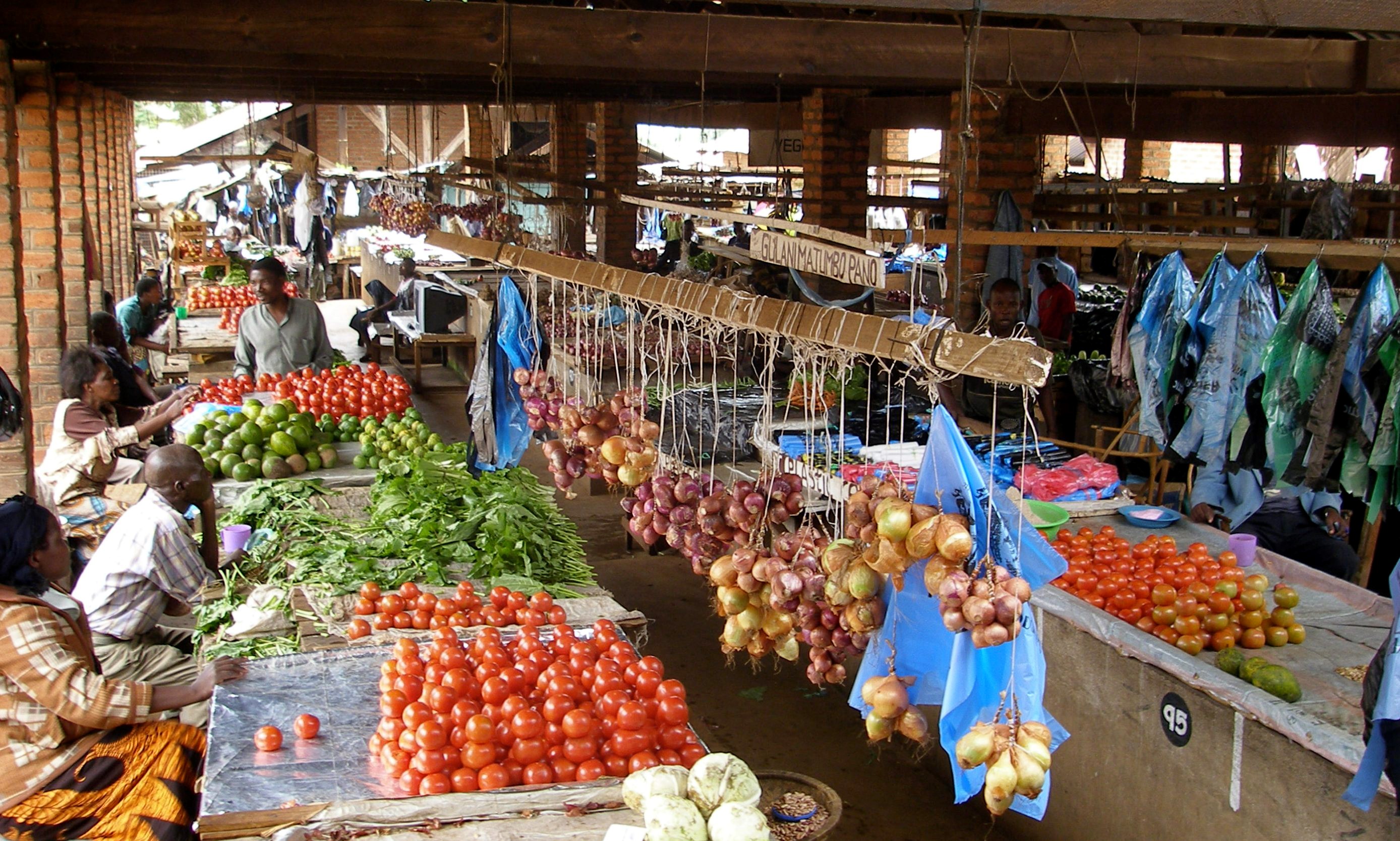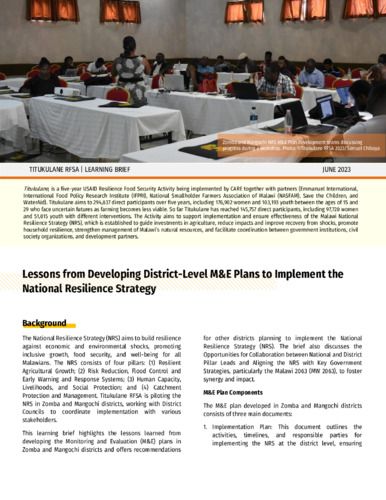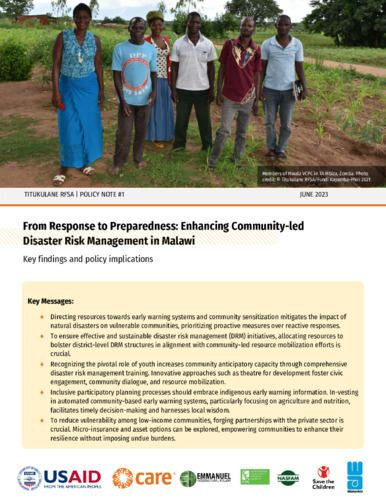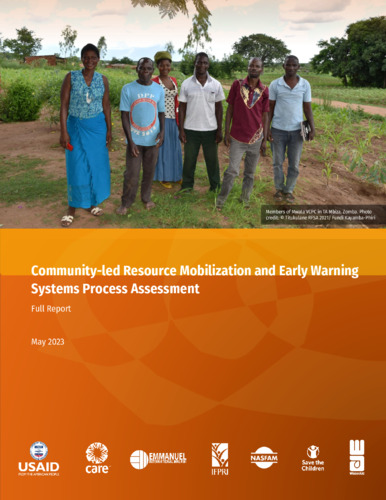The project aims to support implementation and ensure effectiveness of the Malawi National Resilience Strategy (NRS). The NRS was established to guide investments in agriculture, reduce impacts, and improve recovery from shocks, promote household resilience, strengthen management of Malawi’s natural resources, and facilitate coordination between government institutions, civil society organizations, and development partners. The key objective of the project is sustainable, equitable, and resilient food and nutrition security for ultra-poor and chronically vulnerable households and communities in Mangochi and Zomba Districts of Malawi. It has three core purposes:
Purpose 1: Increased diversified, sustainable, and equitable incomes for ultra-poor, chronically vulnerable households, women, and youth.
Purpose 2: Improved nutritional status among children under five years of age, adolescent girls, and women of reproductive age.
Purpose 3: Increased institutional and local capacities to reduce risk and increase resilience among poor and very poor households in alignment with the NRS.









